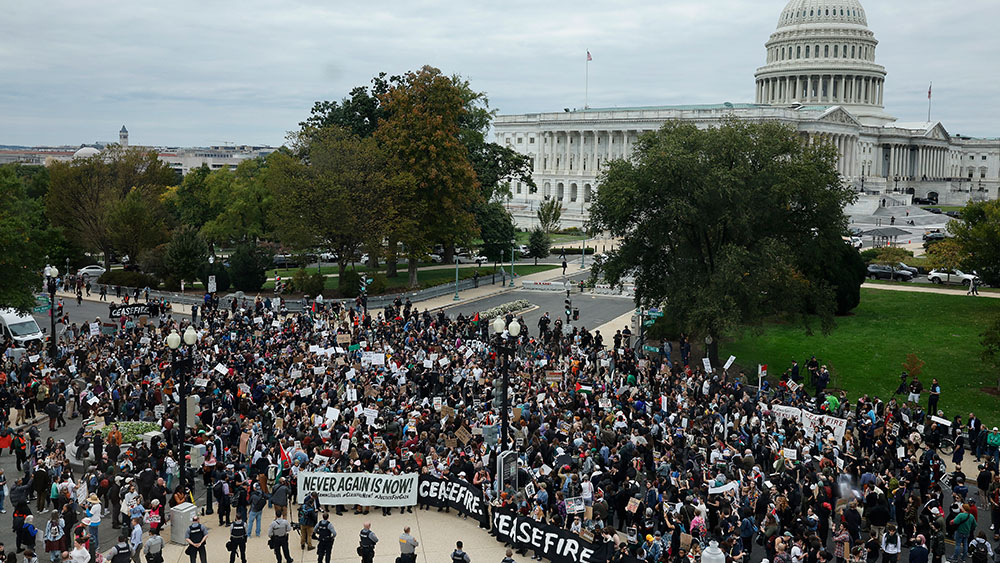 Parler
Parler Gab
Gab
Stick with clean, drug-free meat and other foods prepared at home to avoid these fast food poisons
The three animal antibiotics discovered in the food samples include monensin, narasin, and nicarbazin. They were all found in very low concentrations. Less than 0.5 mcg/kg of monensin was detected in food samples from Taco Bell, Dunkin', Wendy's, Domino's, Burger King, and McDonald's – the "acceptable" daily intake of monensin is said to be 12.5 mcg/kg of body weight per day. Less than 2 mcg/kg of narasin was detected in a Wendy's cheeseburger, as well as trace amounts detected in samples from Dunkin', Domino's, and a Starbucks sandwich. Less than 0.5 mcg/kg of nicarbazin was detected in a Chick-fil-A chicken sandwich – the acceptable daily intake of nicarbazin is 200 mcg/kg of body weight per day. As to what each of these drugs does to the human body, monensin can cause anorexia, diarrhea, weakness, and motor problems – overdoses have slowly poisoned and even killed cattle. In humans, monensin can cause rhabdomyolysis, a condition marked by breakdown of muscle tissue that can damage the heart and kidneys. Narasin is an antibiotic and antiparasitic drug that keeps chickens from developing parasitic infections. It is also added to cattle feed to increase dry matter intake. "Both narasin and monensin are ionophores, meaning they can disturb the balance of ions in cells and are often used in animals to control bacterial and parasitic infections," reports The Epoch Times. "Side effects of narasin in animals include anorexia, diarrhea, and degeneration of heart and skeletal muscles." Then we have nicarbazin, an antiparasitic drug used to fatten chickens and turkeys, as well as to control the population of geese and pigeons. Many farmers refuse to use narasin in their poultry – but Chick-fil-A apparently has no problem with it – because it is highly toxic to embryos and decreases egg laying and hatching. "The impact of millions of Americans, especially children and young adults, consuming a known animal contraceptive daily is concerning," commented Zen Honeycutt, MAA's executive director, about the study's findings. "With infertility problems on the rise, the reproductive health of this generation is front and center for us, in light of these results." In a further statement to The Epoch Times, Honeycutt noted that there have been very few studies about the effects of these and other drugs in humans. "These are veterinary drugs and hormones," Honeycutt said, "so the only studies that I have found and that you will find will be for animals. [They're] not authorized for humans, and yet they're being allowed [into the food supply]." The latest news about America's toxic food supply can be found at ChemicalViolence.com. Sources for this article include: TheEpochTimes.com NaturalNews.com‘For us there is one objective: to destroy Gaza’: Fmr Israeli ambassador rejects calls for diplomacy
By News Editors // Share
Likud Party official alleges Putin supports Hamas, warns Russia will “pay the price”
By Belle Carter // Share
“We must save Israel from itself,” Col. Douglas MacGregor warns in Tucker Carlson interview
By Ethan Huff // Share
Governments continue to obscure COVID-19 vaccine data amid rising concerns over excess deaths
By patricklewis // Share
Tech giant Microsoft backs EXTINCTION with its support of carbon capture programs
By ramontomeydw // Share
Germany to resume arms exports to Israel despite repeated ceasefire violations
By isabelle // Share










